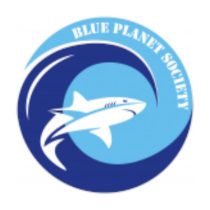Responsible for hundreds of thousands of deaths every year, entanglement in fishing gear is the single biggest threat to dolphins, porpoises and whales (collectively known as ‘cetaceans’). The EU is deciding on future measures to end this bycatch, as it compiles and rolls a number of fisheries conservation measures into one piece of legislation. As coordinator of WDCs bycatch programme, I have been heavily involved in this important work, producing briefings, lobbying and meeting with MEPs and other key stakeholders.

So we’re delighted that dolphin, whale and porpoise bycatch has caught the attention of the EU Fisheries Commissioner, Mr Karmenu Vella, who in response to Blue Planet Society’s petition, which has attracted more than 100,000 signatures, has written this blog on ‘EU actions on cetaceans’ bycatch in commercial fisheries’: https://ec.europa.eu/commission/commissioners/2014-2019/vella/blog/eu-actions-cetaceans-bycatch-commercial-fisheries_en
We welcome the attention and concern of Karmenu Vella, and his commitment to minimising bycatch in European waters and internationally, through support of the new programme brought in by the International Whaling Commission (the body that regulates whaling) to reduce bycatch and the bycatch work of the Regional Fisheries Management Organisations (RFMOs) who oversee fisheries measures in each of the world’s oceans.
We’re also pleased that Mr Vella is committed to following science to inform these unnecessary deaths. Unfortunately the expert body that provides advice to the European Commission, the International Council for the Exploration of the Seas (ICES) bycatch working group, have repeatedly shown that bycatch is high enough that it is likely to be impacting entire populations of bottlenose dolphins, common dolphins and harbour porpoises in some areas of Europe. The bottom line is that many thousands of porpoises and dolphins continue to die in fishing gear in European seas each year.
Karmenu Vella recognises that there is more to be done to tackle bycatch, so here are some thoughts on what the EU needs to do now – if it is serious about continually reducing the number of dolphins and porpoises who die in fishing gear. The existing EU Regulation 812 on cetacean bycatch is out of date. It is being replaced with a new law, and we risk missing an important once-in-a-decade opportunity to put improved and fit-for-purpose measures in its place. This new law, called the new ‘Technical Conservation Measures’ will replace the existing legislation. The new ‘Data Collection Framework’ (DCF) that may replace some of the existing bycatch monitoring requirements is unlikely to collect the detail of cetacean bycatch data required from on-board fishing vessels, so more dedicated monitoring and tailor-made mitigation will likely be necessary beyond the DCF.
And of course, any regulation is only as good as the enforcement to implement it effectively. WDC has recently produced a report exposing and documenting the inadequate implementation of existing bycatch measures under Regulation 812, across a number of the EU Member States that are required to implement it: http://www.wdcs.co.uk/media/submissions_bin/EU-Cetacean-Bycatch-Monitoring-Mitigation-Report.pdf
There are also two key points that Karmenu Vella left unanswered in his blog. These are the most urgent pieces of the jigsaw puzzle to enable us to make progress and to start to reduce deaths in European waters.
Firstly, the US government has recently implemented a US Import Rule to level the playing field for US fishermen. This means that in future years all fish products that are imported from anywhere in the world to the US have to meet the same (more rigorous) bycatch standards as the US domestic fisheries products. This includes not allowing the direct killing of marine mammals (for example, this happens in the production of some Scottish farmed salmon, where seals are routinely shot under licence) as well as requiring monitoring and mitigation of fishing fleets to ensure that bycatch caused by fisheries are not having an impact on population levels. It is not clear what the EU is doing to put the measures in place to ensure that Member States comply with this US Import Rule.
Secondly, and critically, by allowing deaths in nets and gear to continue to have an impact on populations, the EU is failing to follow its own laws. Levels of monitoring and attempts to prevent this bycatch are not sufficient. Enforcement is not sufficient either and so the problems around identifying and then tackling the unnecessary deaths of dolphins and porpoises continue.
With this in mind, perhaps the most important point, will the EU heed the robust scientific advice that informs us that the EUs existing cetacean bycatch measures are inadequate and implement more effective monitoring and mitigation for bycatch across the fishing fleets, where it is required? Ultimately, stronger fisheries measures that encourage responsible fishing will improve consumer confidence and such a step is good for fishermen in the future. A spot light is shining on our poor action on bycatch, in Europe and globally, and we need to work together to end it.
Bycatch caught Karmenu Vella’s attention because of the 113,623 of you who have so far signed the Blue Planet Society petition stating that you want action, so a huge thank you. If you haven’t signed, there is still time!
Sign the petition here to show support to reduce the many thousands of porpoise and dolphin deaths in fishing gear in European seas each year: https://www.change.org/p/karmenu-vella-stop-the-slaughter-of-common-dolphins-by-the-fishing-industry-in-eu-waters
Sarah Dolman is coordinator of Whale and Dolphin Conservation (WDC)’s bycatch programme. Follow Sarah on Twitter @dolmansarahj.





